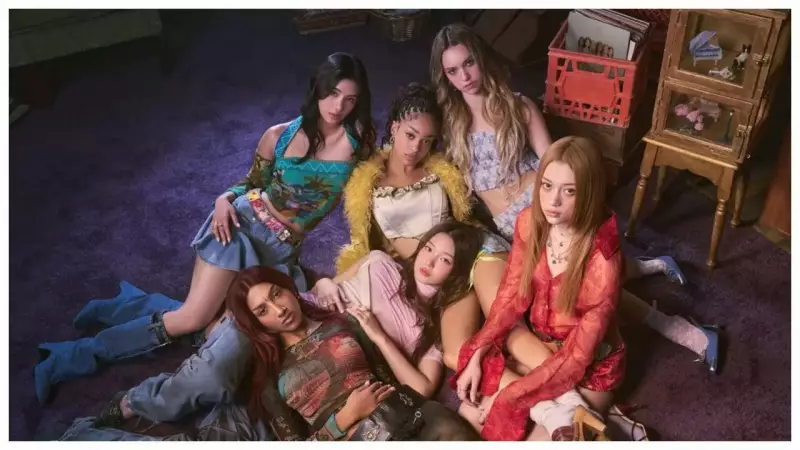
The music world is buzzing with a fresh controversy that questions the very definition of K-pop. HYBE's newest girl group, KATSEYE, has found themselves at the center of a heated debate after earning nominations for two prestigious Grammy Awards, including the coveted Best New Artist category.
A Global Ensemble Forged in Korean Training
Debut in 2024 after a fiercely competitive global audition process, KATSEYE is a true representation of a globalized world. The six-member group boasts a diverse lineup: Yoonchae is the sole Korean member, while Daniela, Lara, and Megan are American; Manon hails from Switzerland, and Sophia is from the Philippines.
Despite their multinational composition, their foundation is deeply rooted in the famous K-pop trainee system. They underwent the rigorous training regimen synonymous with Korean pop culture, which included:
- Synchronized dance routines
- Strict monthly evaluations
- Fan-engaged promotional activities
However, the plot thickens as the group sings exclusively in English and operates primarily from their base in Los Angeles. Their English-language tracks, Gabriela and Gnarly, have already made significant waves, climbing the Billboard charts and securing them prime performance slots at major U.S. music festivals.
Fan Wars and Industry Confusion
The success of KATSEYE has split the global K-pop community right down the middle. Online forums and social media platforms are battlegrounds for conflicting opinions.
One faction views them as a Westernized idol group or even labels their style as K-pop cosplay. The opposing side passionately argues that their K-pop-inspired training, discipline, and overall aesthetic qualify them as a pioneering hybrid genre, the next evolution of K-pop itself.
This confusion isn't limited to fans. Even established K-pop stars have expressed their bewilderment. On a popular YouTube show, senior idols like Girls' Generation's Hyoyeon and BtoB's Changsub openly discussed their confusion regarding KATSEYE's musical identity, mirroring the ambiguity felt by the wider audience.
Media's Divided Lens on a New Phenomenon
International media outlets have further fueled the debate by presenting starkly different narratives. CBS has applauded the group for their high-quality K-pop production values and their successful blend of global cultures.
In contrast, CNN has consciously distanced itself from the K-pop label, instead choosing to describe KATSEYE as a global group. This media divide raises a critical question for critics and analysts: Do their Grammy nominations signal the ultimate mainstream globalization of K-pop, or do they represent the birth of a new, Americanized pop identity with Korean roots?
The story of KATSEYE is more than just about awards and chart positions. It highlights the rapidly evolving nature of global pop music and directly challenges the traditional boundaries of what defines K-pop as the genre continues its explosive expansion beyond South Korea's borders.






